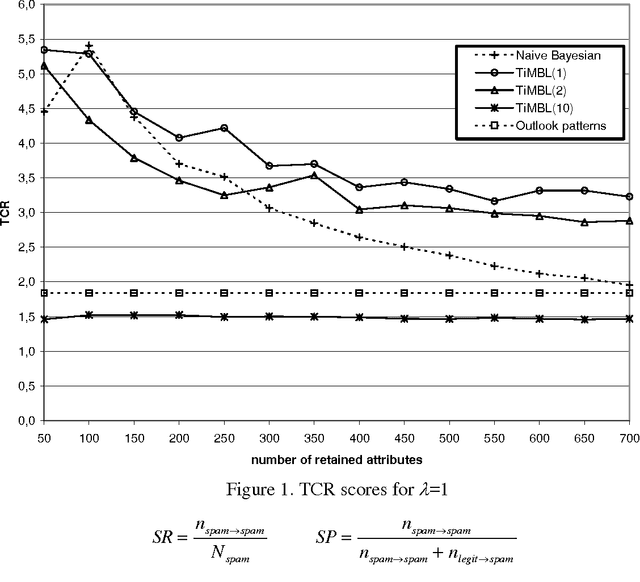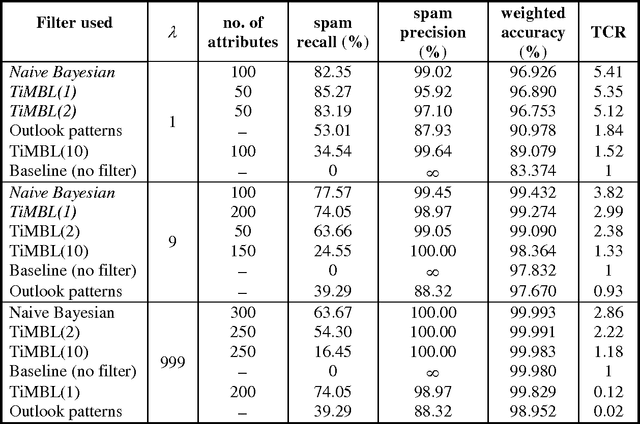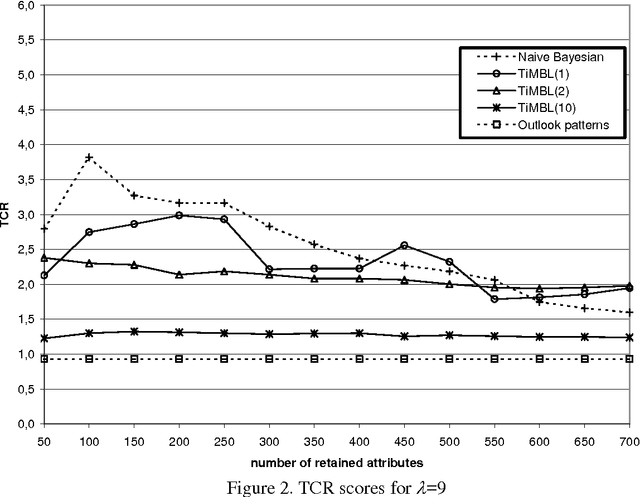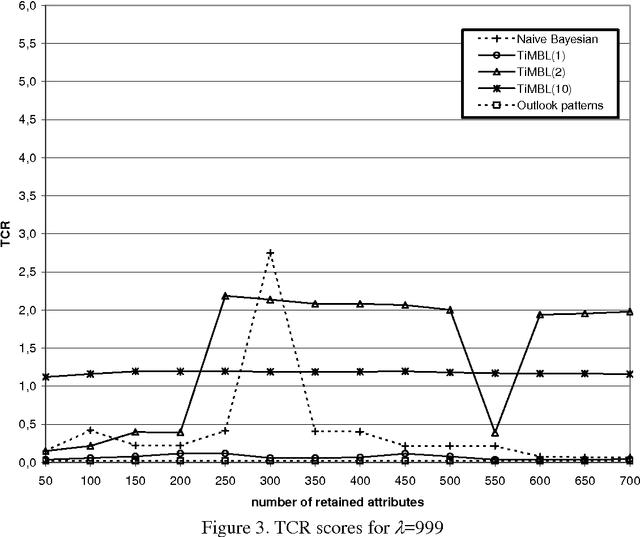Learning to Filter Spam E-Mail: A Comparison of a Naive Bayesian and a Memory-Based Approach
Paper and Code
Sep 18, 2000



We investigate the performance of two machine learning algorithms in the context of anti-spam filtering. The increasing volume of unsolicited bulk e-mail (spam) has generated a need for reliable anti-spam filters. Filters of this type have so far been based mostly on keyword patterns that are constructed by hand and perform poorly. The Naive Bayesian classifier has recently been suggested as an effective method to construct automatically anti-spam filters with superior performance. We investigate thoroughly the performance of the Naive Bayesian filter on a publicly available corpus, contributing towards standard benchmarks. At the same time, we compare the performance of the Naive Bayesian filter to an alternative memory-based learning approach, after introducing suitable cost-sensitive evaluation measures. Both methods achieve very accurate spam filtering, outperforming clearly the keyword-based filter of a widely used e-mail reader.
 Add to Chrome
Add to Chrome Add to Firefox
Add to Firefox Add to Edge
Add to Edge